Fragrant dill is not only a common seasoning, but also an indispensable component of a woman’s diet when breastfeeding. How can you not pay attention to it? After all, it is a real storehouse of useful substances, essential vitamins and minerals. It has unique healing properties and in the form of teas and cocktails is widely used to increase lactation. It is useful not only for mom. Dill water effectively fights intestinal colic in babies. That's why it is incredibly popular with nursing mothers.
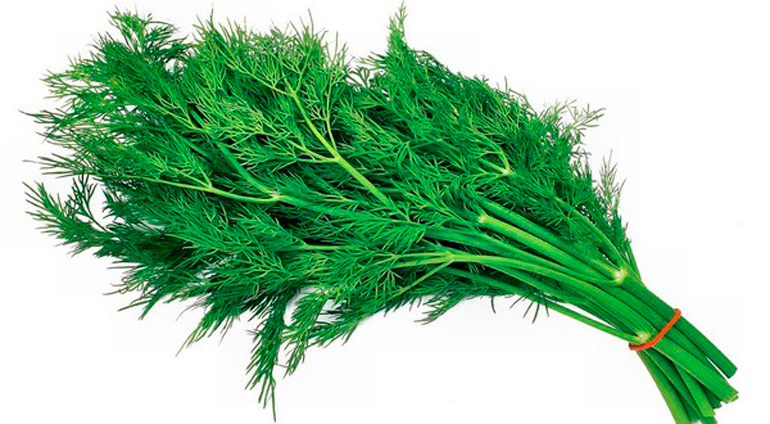
The word “dill” was derived from the Latinized Greek “anethum”, which translates as “odorous”, “with a strong smell”.
Dill and lactation
Fragrant dill is the most popular and delicious seasoning, which is able to give ready-made dishes a special taste and pleasant aroma. It is indispensable in the preparation of soups and salads, meat and side dishes. It can be added to various vegetable juices and they will become healthier and more aromatic.
Therapists and pediatricians recommend the use of dill for breastfeeding is no coincidence. Very often, the problems of a young mother are headache, heaviness in the stomach, sleep disturbances, exacerbation of cystitis. Dill successfully copes with these ailments. His remarkable ability to increase lactation and increase breast milk is widely known.
He helps the baby. Fennel (pharmaceutical dill) is used to make dill water, which is effective eliminates intestinal colic and cramping in the baby.
Experts advise including dill in the diet of a nursing mother on the 10th day after childbirth. It is used fresh, as a wonderful seasoning for vitamin salads, main dishes and side dishes. Healing infusions are prepared from its seeds to improve lactation. You can simply fill the dill seeds with a mini-sachet and hang them in the room in which you usually feed the baby. It is believed that the smell coming from canvas bags can affect the flow of breast milk.
Why is dill so healthy?
It is valued as a storehouse of healthy health promoting substances. It is rich in vitamins C, group B, folic acid, E, rutin, nicotinic acid, which are vital for the body of a nursing mother, which provide an optimal metabolism, regulate blood cholesterol, are necessary for good vision and the body's resistance to infections. Its composition includes a strong antioxidant - carotene (provitamin A).
Dill is an excellent source of valuable trace elements such as iron, phosphorus, calcium salts, potassium, zinc.It contains a large amount of fiber, which helps the intestines, which is especially important in the postpartum period. A unique property of dill is the presence of anetine in its composition - an excellent antispasmodic substance that has the ability to dilate blood vessels and capillaries, which is especially valuable in the treatment of cardiovascular diseases.
Healing properties
The healing properties of dill are as follows:
- Due to its beneficial composition, dill and its seeds are indispensable in the prevention and treatment of diseases of the heart, blood and gastrointestinal tract;
- It helps to normalize blood pressure for those suffering from hypertension;
- Dill improves digestion and metabolism;
- Fiber contained in it effectively cleanses the intestines and eliminates bloating;
- Its use activates the secretion of gastric juice and this helps to improve appetite;
- Dill is famous for its excellent diuretic properties. It is used in the treatment of cystitis;
- It has expectorant properties. Recipes based on its essential oils cleanse the airways and remove sputum from the body. Decoctions of dill give excellent results in the treatment of cough, bronchitis and tracheitis;
- Bactericidal properties are also known. Oils and infusions of seeds help eliminate allergic skin itching, relieve inflammation and promote rapid healing.
All these medicinal properties, combined with the remarkable ability to enhance lactation, make dill extremely useful for women who are breastfeeding.
Precautions
Experienced doctors do not recommend eating greens and dill seeds for mothers suffering from low blood pressure. Anetin, which is part of it, expanding blood vessels, can provoke a sharp drop in pressure. If you have hypotension, it can cause nausea, weakness, dizziness, temporary loss of vision, and even fainting.
Extremely carefully, you should use dill if your mother has a tendency to allergies or in case of individual intolerance to this seasoning.
If there are large stones in the bile ducts of a woman, it is also recommended to treat him carefully. Its active components contribute to the formation of bile and its excretion and can cause an attack.
Does fragrant dill really help increase lactation?
In ancient times, doctors and healers considered dill a terrific remedy, the decoction of which can increase the amount of breast milk in the nurse. Our grandmothers and great-grandmothers actively used folk recipes based on dill and its seeds.
Today, often encountered problems with lactation mothers also solve with his help. In terms of exposure, it may be weaker than expensive pharmacy lactogenic drugs. But, acting slowly and gently, he is able to give a noticeable effective result on the condition of daily use without long breaks.
Dill recipes to increase lactation
If you are exclusively breast-feeding a baby and you need to increase the amount of breast milk, you can try dill tea.
Make it easy:
- In a large tea cup, put a tablespoon of fragrant dill seeds, previously crushed in a coffee grinder or blender;
- Pour them with boiling water (250 ml);
- Cover the cup and let the tea brew;
- Strain and drink the resulting drink in small sips before feeding the baby throughout the day.
Why grind the seeds before steaming? This will make the tea as useful as possible. Such tea will not only increase milk production, but also has a light sleeping pill and help relieve nervous tension.
A wonderful cocktail of dill also helps to strengthen lactation. For its preparation:
- In a coffee grinder or blender, grind seeds of anise, dill, fennel and fenugreek, taken in equal proportions;
- 1 tablespoon of the resulting mixture is steamed with boiling water (250 ml) and insisted for half an hour;
- Then filter and drink 2 times a day for half an hour before the start of breastfeeding.
If you notice an allergic reaction in a baby, it is better to cancel the cocktail.
ON THE TOPIC OF LACTATION:
How to increase lactation of breast milk at home (folk remedies and tablets) -https://kid.htgetrid.com/en/kormlenie-grudyu/kak-povyisit-laktatsiyu-grudnogo-moloka.html
How to restore lactation - 10 main recommendations -https://kid.htgetrid.com/en/kormlenie-grudyu/kak-vosstanovit-laktatsiyu-10-glavnyih-rekomendatsiy.html
How does dill help a baby?
Many mothers are faced with such unpleasant phenomena as colic, increased gas formation or bloating in the child. He cries a lot, bends and rocking or calming him while it is simply impossible. The cause of colic is air bubbles that irritate the baby’s intestines and cause pain.
For decades, mothers have been saving their children with dill water, which can alleviate the suffering of the child and eliminate swelling of the tummy. It can be bought ready-made in pharmacies, but rememberthat the shelf life of such water does not exceed ten days, provided that it is stored in the refrigerator.
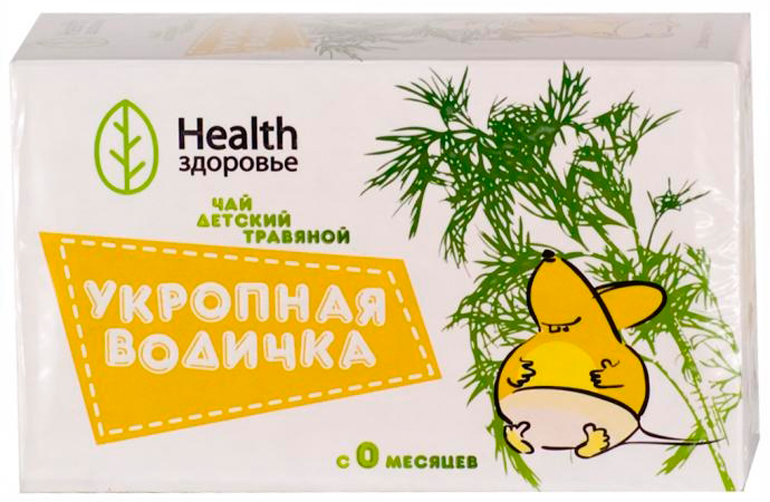
In the pharmacy you can buy a finished product based on Plantex fennel seeds, packaged in bags. It is diluted with boiled water at room temperature and is given to the baby from two weeks of age. Before using it, it is advisable to consult a pediatrician.
How to make dill water at home?
For its preparation use fennel seeds. It looks like an ordinary fragrant dill, but differs in a more pronounced taste and aroma.
Dill water recipe for a baby:
- Grind a tablespoon of fennel seeds in a blender or coffee grinder and pour a glass of boiling water;
- Insist for an hour and strain.
Babies up to a month are recommended to drip 15 drops of dill water on the tongue at one time. For older people, you can increase the dose to 25 drops. The number of receptions per day is better agreed with the pediatrician. Usually babies up to a month of dill water are given 2-3 times a day between feedings, and older children - 4-5 times. Dill water can be diluted in expressed breast milk or in the prepared milk mixture.
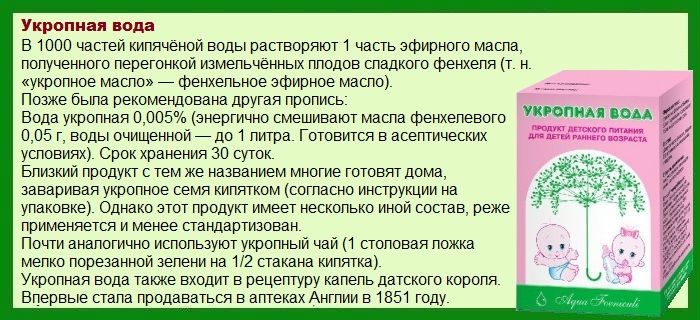
Regular use of dill water is not addictive in the child and can positively affect the overall well-being of the baby. It can also be given to prevent colic. The child will become calmer, cry less and you can truly enjoy the joy of motherhood.
READ MORE DETAILS: Dill water for newborns: a recipe for dill water, the benefits and how much to give the baby -https://kid.htgetrid.com/en/zdorove-rebenka/ukropnaya-voda-dlya-novorozhdennyih.html
Video: Useful properties of dill
Interesting facts about dill: The ancient Egyptians used a decoction of dill for headaches. Hence, by the way, the healing "morning" properties of cucumber pickle, relevant for some of our fellow citizens, because dill with its very useful essential oil is an essential component in pickling pickles.


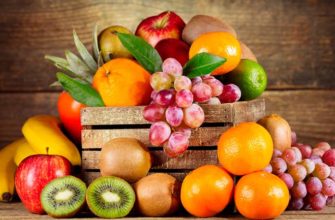

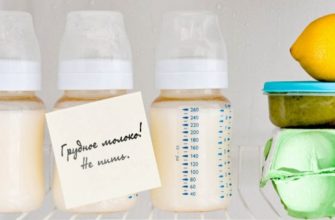




Hello. I had a difficult period of pregnancy.The milk from the breast was too fat and in insufficient quantity. For a long time we read the Internet, listened to the advice of doctors, still could not find a solution. They even turned to magicians and fortune tellers. Well, you yourself know that this is our female 🙂 Dill came across quite by accident, learned a lot about its beneficial properties, and also that it has a very strong internal energy. Used with great care, the results began to manifest themselves not immediately. At first, overall health improved, then there were changes in mood, for the better. Then all metabolic processes returned to normal. By the way, you can’t even count the recipes that can be used with dill, but how much more you can come up with! I highly recommend it. But in any case, be careful and take care of yourself and your loved ones.